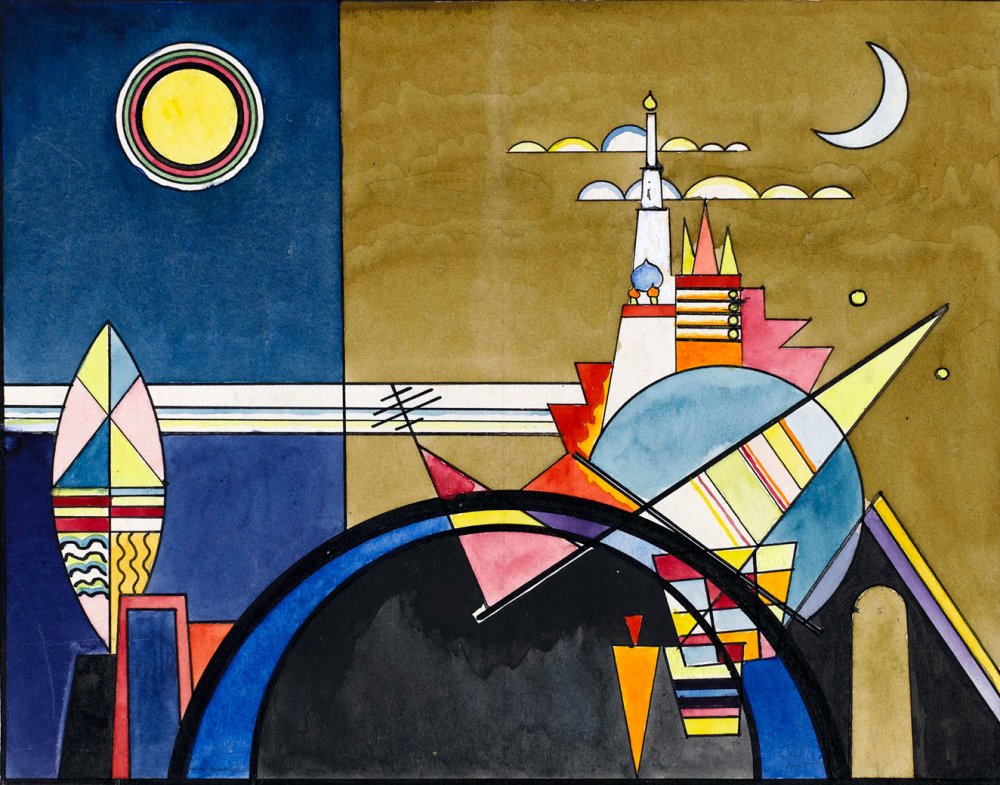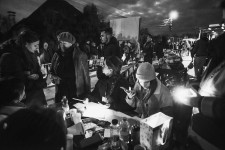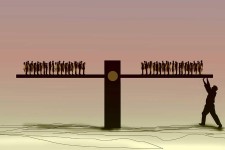In fact, it was nothing like that. Houses are amazingly complex repositories. What I found, to my great surprise, is that whatever happens in the world – whatever is discovered or created or bitterly fought over – eventually ends up, in one way or another, in your house. Wars, famines, the Industrial Revolution, the Enlightenment – they are all there in your sofas and chests of drawers, tucked into the folds of your curtains, in the downy softness of your pillows, in the paint on your walls and the water in your pipes. So the history of household life isn’t just a history of beds and sofas and kitchen stoves, as I had vaguely supposed it would be, but of scurvy and guano and the Eiffel Tower and bedbugs and body-snatching and just about everything else that has ever happened. Houses aren’t refuges from history. They are where history ends up. – Bill Bryson, At Home. A Short History of Private Life, Doubledy, 2010.
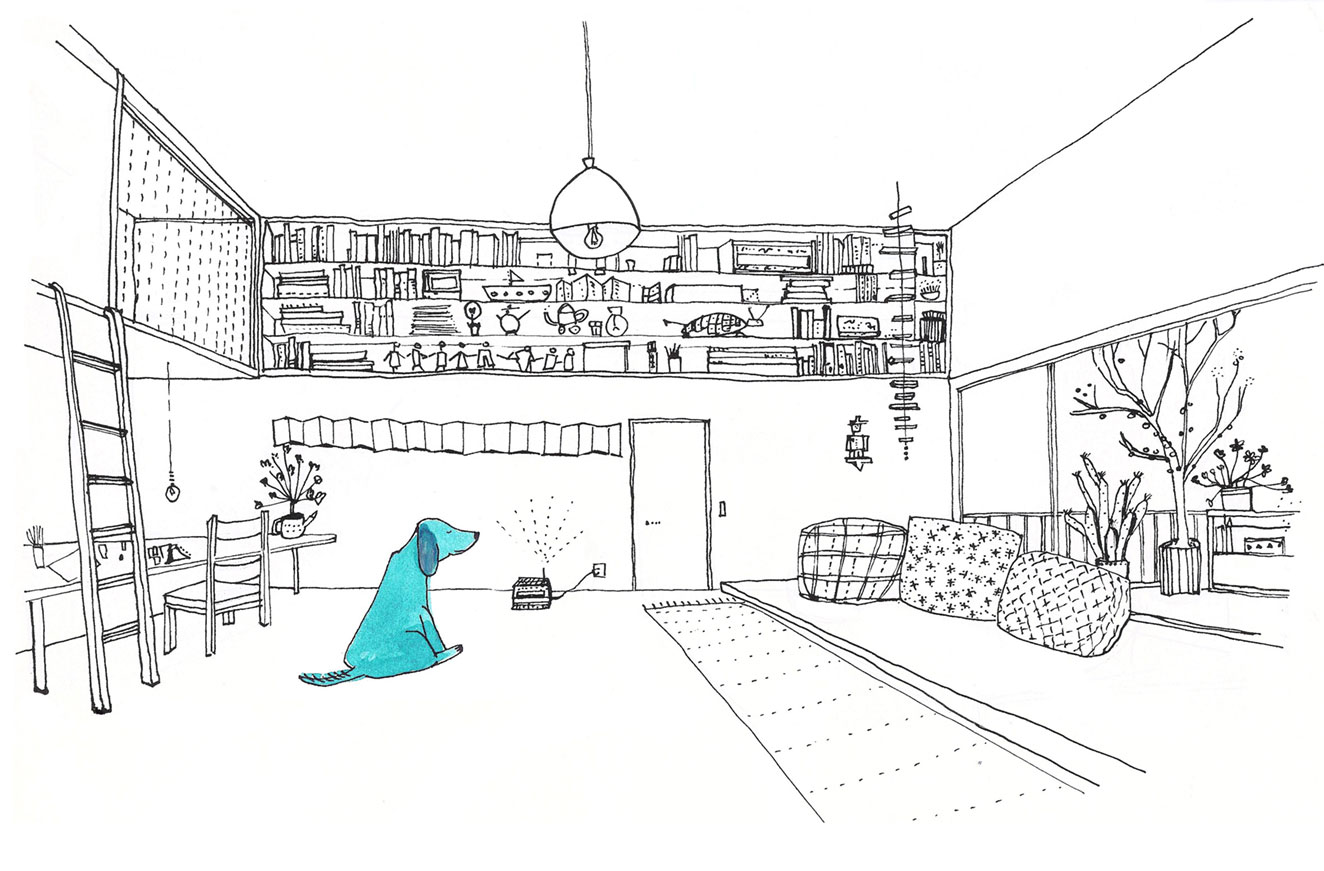
The house is a reflection of our personality, a subjective interpretation of how we think the world we live in should be. The way we decorate our rooms, arrange our furniture, place our books and music, prioritise our workspace, our relaxation space, or our child's room, reveals the beliefs, hopes, and expectations we project onto society. So the home becomes a place of refuge to which we give an almost utopian quality; it is an island that functions, more or less, according to our own rules.
A country is built on roughly the same coordinates, but this time as a common projection, it is the arithmetic average of all the desires of the community, a return of consciousness to itself, particularly in relation to the models offered by the surrounding world, when society goes through a (often long) process of reconstruction.
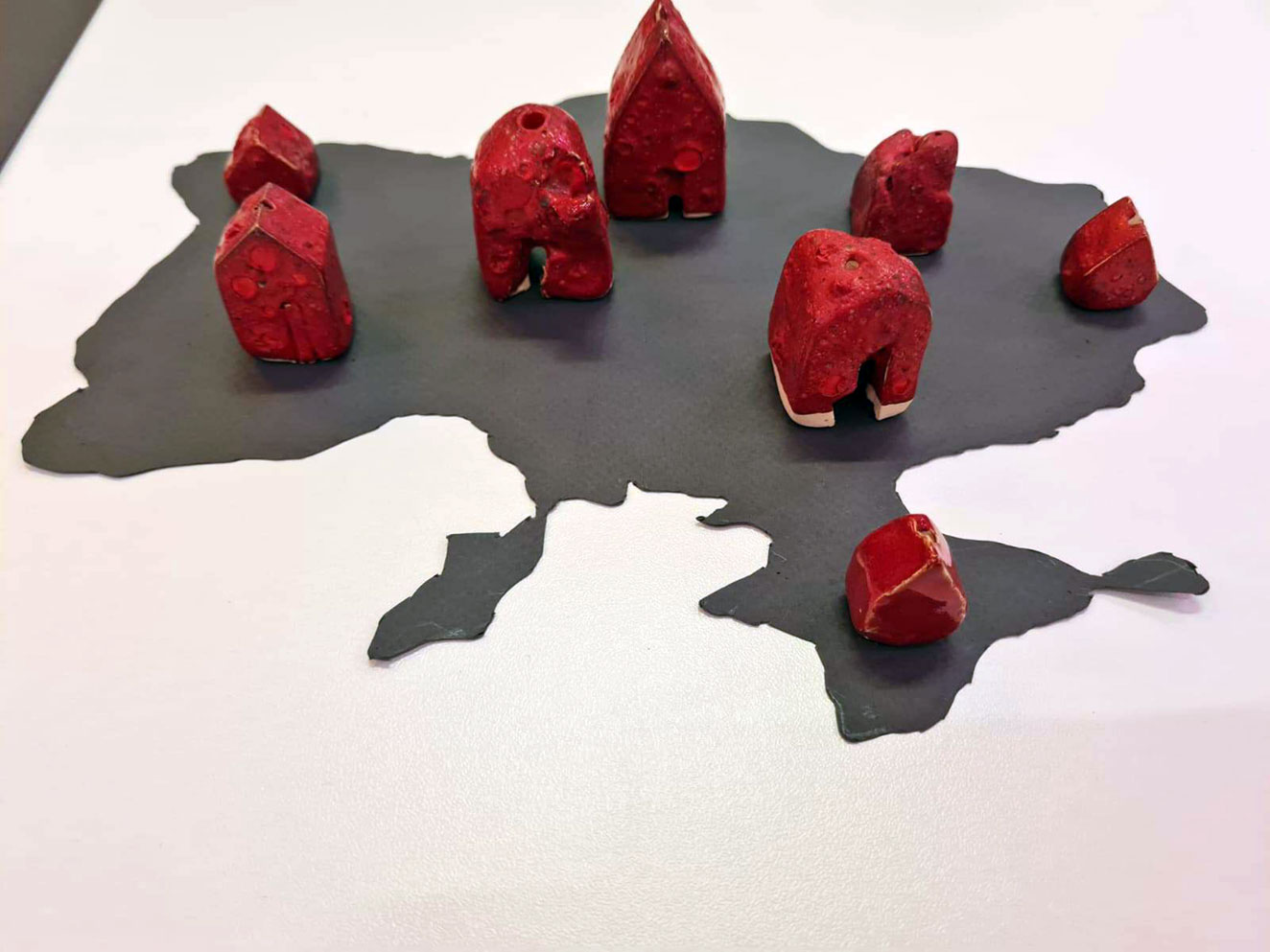
Kateryna Serov's dream was to finish renovating the family's old summer house, a dacha in Moshschun, six kilometers from Kyiv, before the birth of her fourth child. Her story is an old one that has been told before but is repeated in almost every generation. It is the story of one who cannot stand against the whirlwind of history, no matter how hard he tries, of destiny shattered by events and uncontrollable forces.
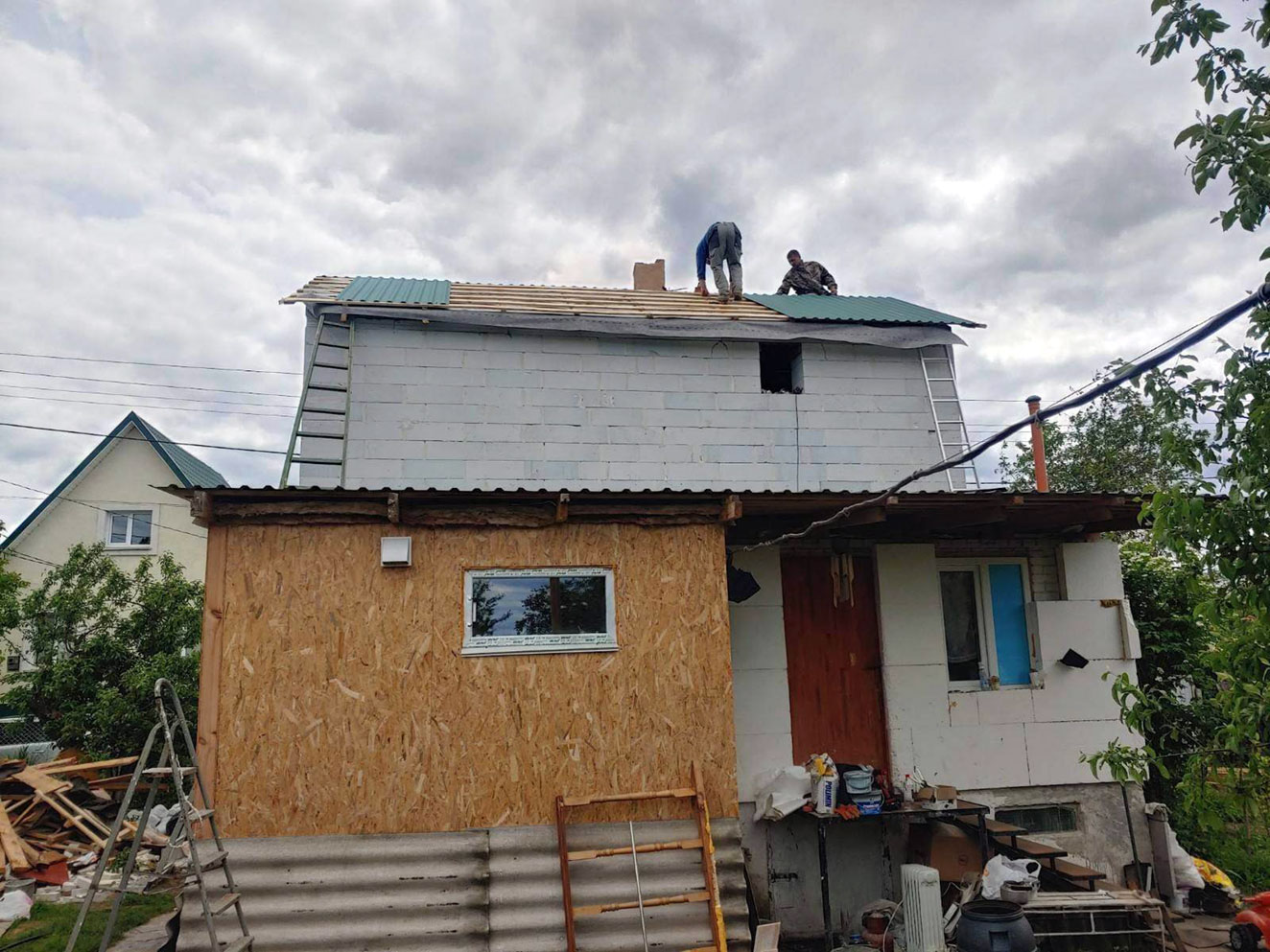
She and her family began renovating the house in 2019, in the after-hours of the afternoon. The house, inherited from her parents, was old, suitable only for summer living. They hooked it up to utilities, added another floor, built a roof because it was raining on them, and built a new kitchen, small but sufficient. They painted, changed the floors, built stairs, brought in new furniture, and rearranged the rooms so that everyone could fit - kids' room, study, living room, bedroom - endured the cold until they could insulate the walls. "We did almost everything, we did the furniture, we did the children's rooms, and we even managed to fit in a very small place where my husband could work, it's a very important thing to have your own space." Over the old history of the house, built by her grandparents, Kateryna has gradually, day by day, designed her future.
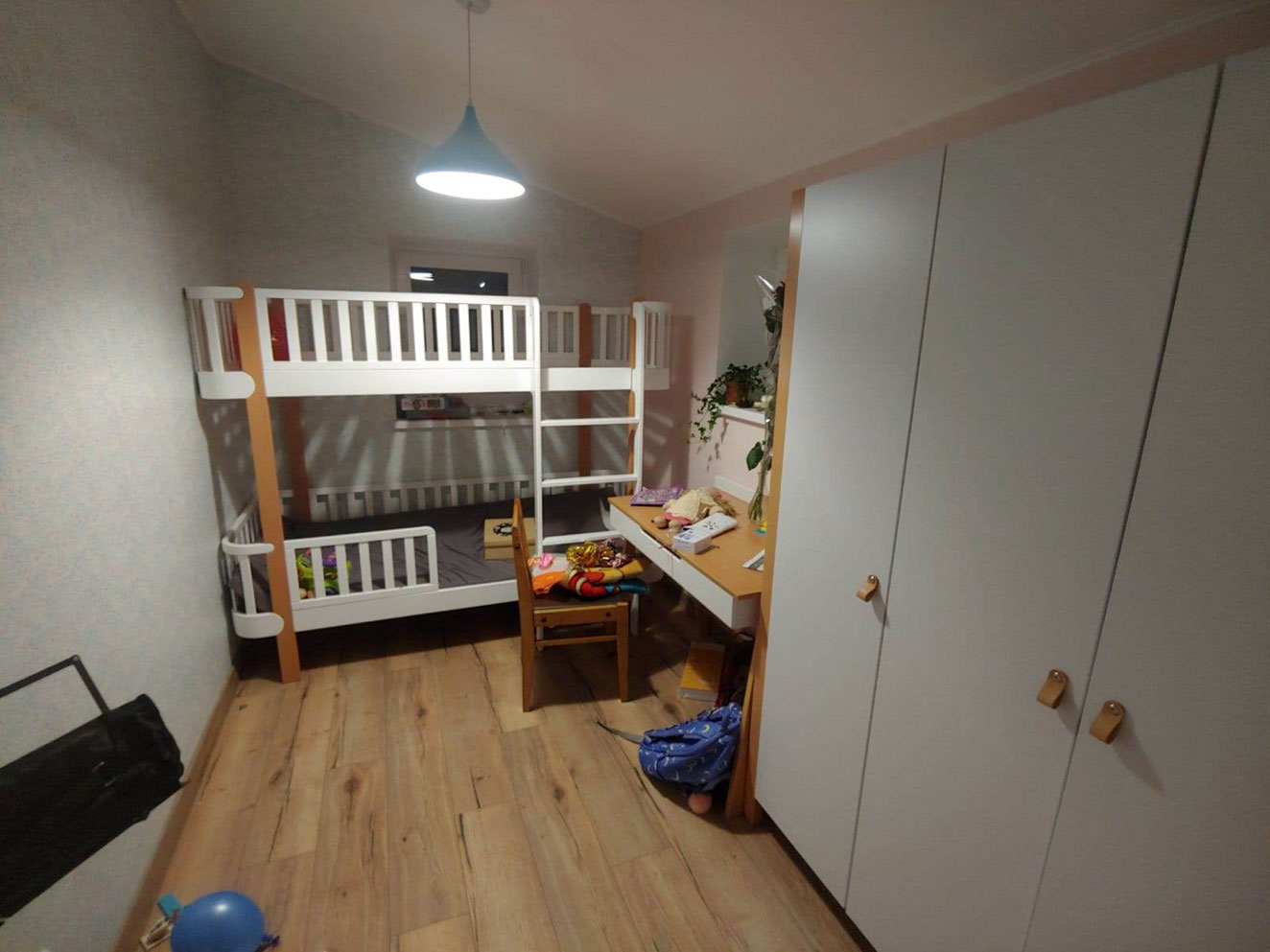
All interventions were made according to the plans and under the strict supervision of Kateryna, who is an architect and a graduate of the University of Kiev. The work took three years, until 2022. The year before, when she found out she was pregnant again, the pace of renovations was accelerated. They also called in a few friends to help, a rather complicated task given the Covid pandemic. But they didn't give up. "I told them I wanted to give birth in this house, in my house, and they asked me what week it was. I told them I was in week 38, and they said I didn't have time. How could I not have time, we have plenty of time and we have to finish renovating. My husband made the stairs leading upstairs, I made the plans and he cut the iron and welded them. They were great. On December 31, before the New Year, we were putting the doors up." Kateryna was all over the place, with the roller, with the spatula, with the jointer. Even the children began to participate, as much as they could, at the small construction site.
Moshschun is in the north of Kyiv, on the right bank of the Irpin River, far from the hustle and bustle of the capital. It's a village surrounded by forests and lakes, an idyllic place, good for a family with children. Kateryna, her husband, and her children spent their summers, when not working on the house, hiking and swimming. She painted and modelled pottery, with which she decorated the rooms. They also set up a garden, because the possibility of a self-sustaining life in Ukraine is an ideal born out of the Soviet Union's shortages. The dacha became the ideal place where their family could grow and settle down.
But Moshschun hides a secret that is hundreds of years old. North of Kyiv, very close to Bucha, the village is right on the last line of the city's defences, surrounded by fortifications. When her grandparents started building the dacha after World War II, they found an unexploded bomb on the land where they were raising their holiday home. What's more, the Irpin River can be fed from the nearby dam and pulled out of the embankments to make the corridor leading to Kyiv impassable. In the event of war, the village, the houses, and the people find themselves on the front line, surrounded by marshes.
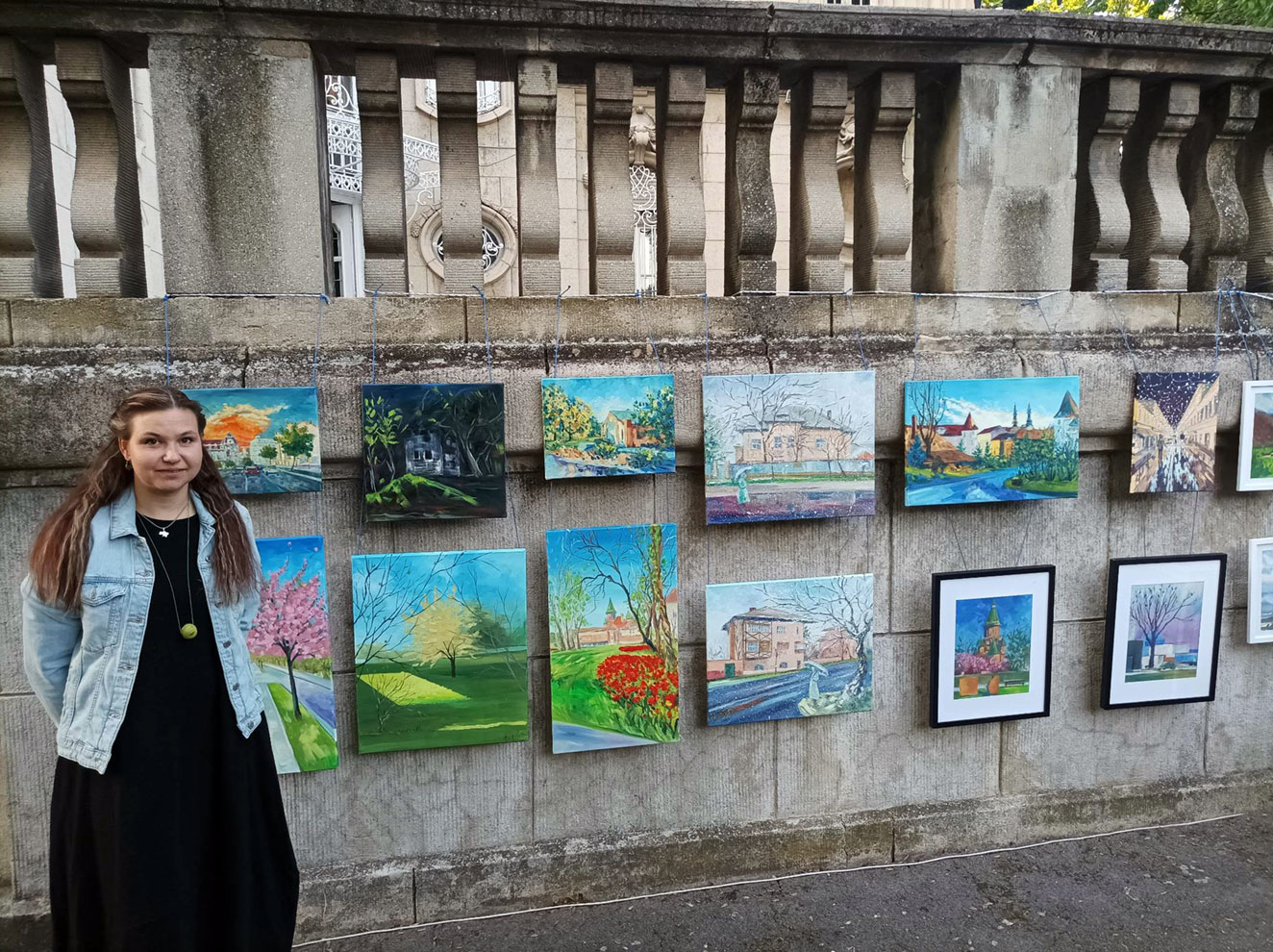
Kateryna's father died of cancer four days before his daughter gave birth. He never saw the house finished. It was a hard blow, difficult to deal with, but the woman didn't have time to mourn, because in their midst came Maria, her youngest daughter. "When I gave birth, they told me we had to go to the hospital, but I said I'm not going anywhere, I want to give birth here, nowhere else. And so I did, the midwife came and I gave birth at home. We had walls, we had a roof, it was plastered." For a while, their lives remained in a precarious, if natural, balance of unequal living, with good and bad.
On January 10, 2022, the family gathered in the now old and new house at the same time to commemorate the loss of their father, but also to celebrate the newborn in their midst. In fact, she, her husband, and the children, all consecrated the normal path their lives had somehow entered.
Then, a few more weeks later, on the morning of February 24, Kateryna looked up into the sky and saw helicopters and fighter jets passing over their home. That was the moment when her plans were suddenly shattered. It was on the news that they learned about the invasion. The news was that the Russian army was on its way to Kyiv, and in Moshschun there were rumours that the Hostomel airport, only a few kilometres away, and the forest had already been occupied by the troops. Kateryna's first thought was to run to the store and buy supplies. "I saw helicopters flying over the house and I got really scared. I got dressed and went to the store to get what I needed. Need for what? I didn't know what was going to happen, what was actually happening then."
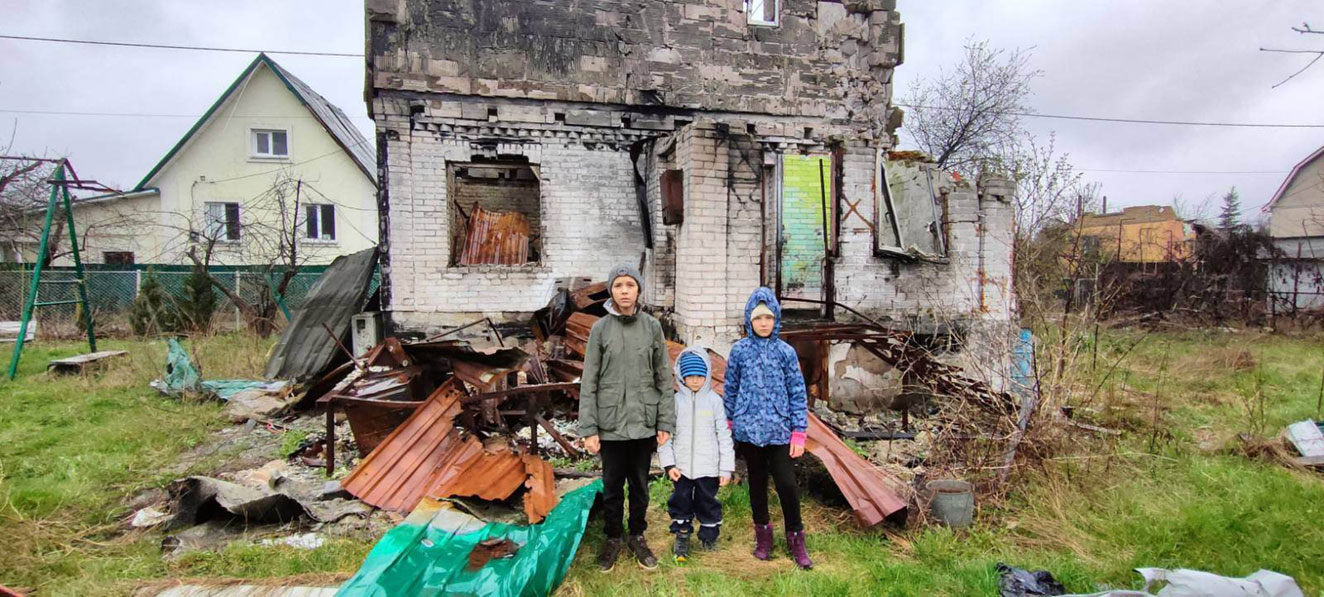
What is there to buy at times like this? What is absolutely necessary? Canned food, diapers, water, grease? In the panic of the moment, amid the chaos, the thousands of people frantically filling their baskets, Kateryna bought chocolate. From there she returned home, and two days later she left everything behind and fled Ukraine with her husband and children.
For several weeks, the front line passed through Moshschun. The heavy fighting at Hostomel and Bucha did not bypass the village. Russian rockets fell on the streets and on people's houses. Kateryna's house was also hit, and the years of work, the dream of a house designed according to her plans, the furniture, rooms, paintings, and ceramics, were all pulverised. In the forests surrounding the village, Russian soldiers have buried landmines everywhere. The idyllic place turned into a nightmare, a no man's land where no one could survive. The future shattered under the force of the present.
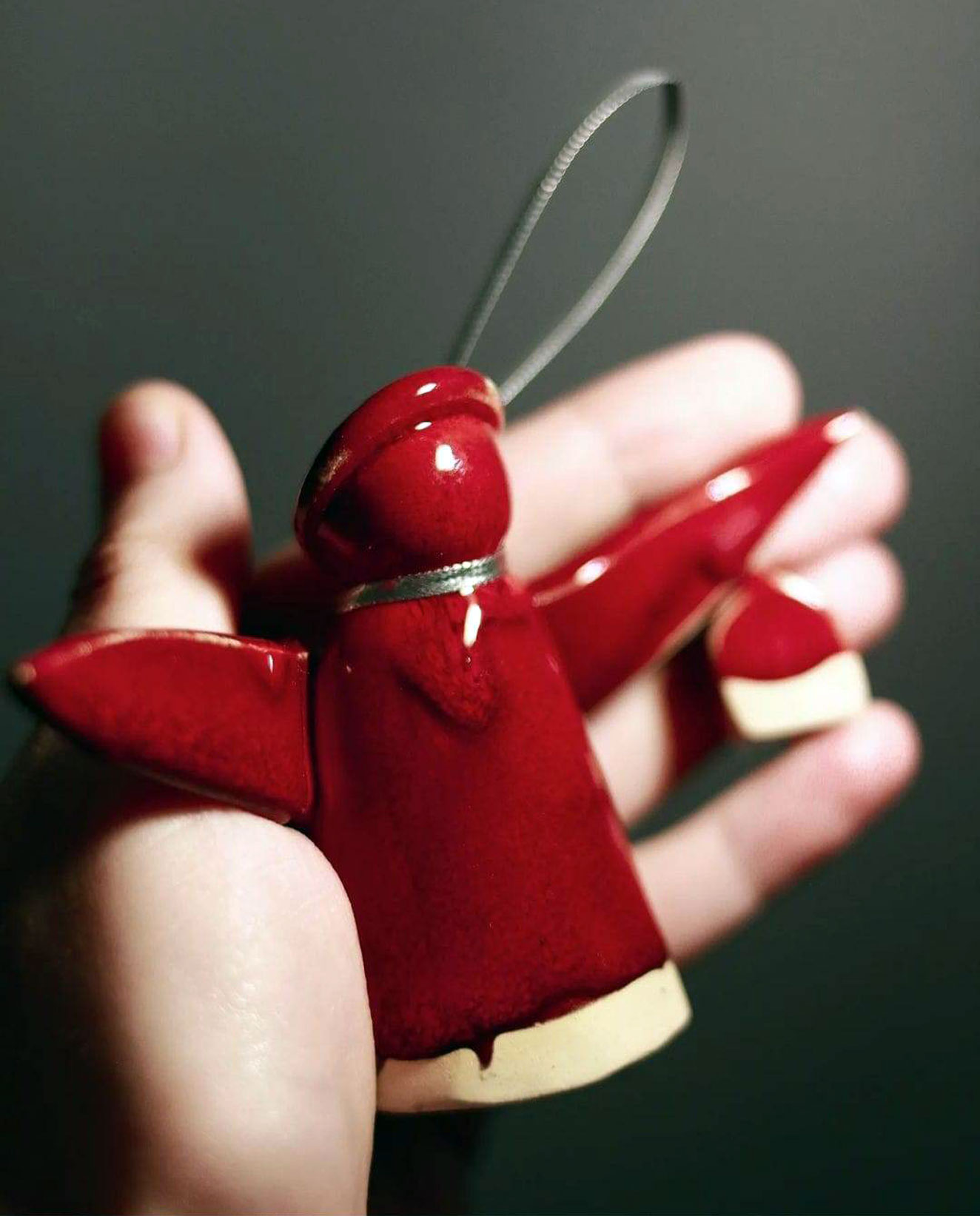
Today Kateryna lives with her family in Timișoara. After a while, she began to negotiate her trauma and disappointment through art. She paints the city, streets, old buildings, and churches and plans several exhibitions. She creates little houses and angels out of ceramics and draws homes on them. "They're guardian angels, they're meant to protect the places they live in, I think that's why they embrace them and take them to heart." She doesn't know if she can return to Moshschun, if she still has the strength to rebuild. But she wants to return home to Ukraine, which has remained her home, their home. Throughout the interview, Kateryna remained cheerful and open, though the traumas she has been through and their consequences are obvious. For her, for all Ukrainians.
A house takes in people's energy, happiness, sadness, joy, and disappointment. In its walls, in its sofas, in its curtains are trapped, like a book with faded letters, all the stories of the people who live in it. A house is not just a row of walls, a floor, a ceiling, a kitchen, and a few rooms, it is an ideal, an almost organic extension of the family ideal. Like it, a nation, and the people who make it up, store up all the traumas of great events, of the history that cannot be controlled or stopped. And also like them, a country, Ukraine, is the manifestation of the aspirations and desires of all those living within or outside its borders, it is in fact a house, their house, built and rebuilt by them, for them.








